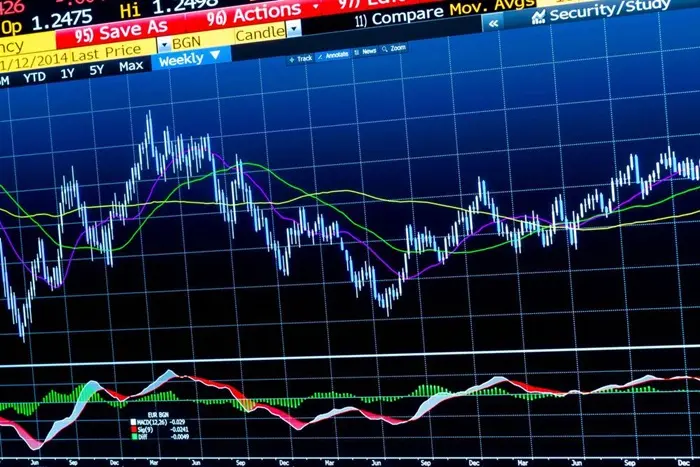In the world of investing, the term “war stocks” is often used to describe a category of companies whose business thrives during times of war or conflict. These stocks are typically linked to industries that produce goods or services required for military efforts, defense, and national security. Investors who seek to profit from the economic implications of war often turn to war stocks as a way to capitalize on the increased demand for military-related products and services.
The concept of war stocks is not new. Throughout history, investors have sought to position themselves in companies that benefit from the increased spending associated with military operations. However, investing in war stocks involves significant risks and ethical considerations. This article will explore the nature of war stocks, how they are classified, their potential benefits, and the risks involved in investing in this category.
Understanding War Stocks
War stocks are shares of companies that provide products or services that are in high demand during periods of conflict. These companies are often linked to industries such as defense, aerospace, military technology, and energy. When countries go to war, governments typically increase military spending, which can create a surge in demand for the goods and services offered by these companies.
While war stocks are often associated with large defense contractors, the broader category includes any company that benefits from wartime activity. This can include companies involved in the manufacturing of weapons, ammunition, and military vehicles, as well as firms in sectors like logistics, cybersecurity, and infrastructure.
During times of war, governments tend to allocate substantial budgets for defense contracts. These contracts are often awarded to publicly traded companies that specialize in military hardware, technology, and services. As a result, investors in these companies may see an increase in stock prices due to the heightened demand for their products.
Key Sectors Linked to War Stocks
There are several industries that are directly impacted by war and conflict. Below are the key sectors that are commonly associated with war stocks:
Defense and Aerospace
The defense and aerospace industries are the primary beneficiaries of wartime spending. These sectors include companies that manufacture weapons, aircraft, ships, missiles, and other military hardware. In addition to traditional military equipment, companies in this sector may also produce technologies used in modern warfare, such as drones, satellite systems, and cybersecurity software.
Some of the largest and most well-known companies in the defense and aerospace industry include Lockheed Martin, Northrop Grumman, Raytheon Technologies, and Boeing. These companies are major suppliers of military equipment to governments around the world, and their stock prices tend to rise during times of war or geopolitical instability.
Energy and Oil
During times of conflict, the demand for energy and oil often increases. Military operations require significant amounts of fuel, and governments may prioritize energy resources for strategic purposes. Oil companies, especially those involved in drilling, refining, and distributing petroleum products, may benefit from the increased demand for energy during wartime.
Energy stocks, such as those of oil majors like ExxonMobil, Chevron, and BP, often experience an uptick in prices when geopolitical tensions escalate. This is particularly true when conflicts disrupt global oil supplies, causing prices to rise. Additionally, companies involved in the construction of energy infrastructure, such as pipelines and power plants, may see increased demand for their services.
Cybersecurity
In modern warfare, cyberattacks have become a critical aspect of conflict. As a result, the cybersecurity industry has seen increased demand for its products and services. Governments and military organizations require advanced security systems to protect their digital infrastructure from cyber threats. Companies that provide cybersecurity software, services, and technology are often in high demand during periods of conflict.
Investors may turn to cybersecurity stocks as part of their war stock strategy. Major players in this sector include companies like Palo Alto Networks, CrowdStrike, and Fortinet. These firms offer products that protect against cyberattacks, including malware, ransomware, and hacking attempts, all of which are prevalent in modern warfare.
Logistics and Infrastructure
Wartime efforts require extensive logistics and infrastructure support. This includes the transportation of goods, military equipment, and supplies to the front lines. Companies involved in shipping, freight, and transportation services may see increased business during times of war. In addition, companies that provide construction and infrastructure services, such as building military bases, airfields, and other essential structures, may also benefit.
Logistics and infrastructure stocks, such as those of companies like FedEx, UPS, and Caterpillar, may experience an uptick in demand during times of war. These firms are essential in ensuring the smooth flow of goods and services to support military operations.
Healthcare and Pharmaceuticals
The healthcare and pharmaceutical sectors also play an important role during periods of war. Military conflicts often result in a higher number of injuries, both physical and psychological, which leads to increased demand for medical supplies, equipment, and treatments. Additionally, the development of vaccines and medications to address wartime diseases and infections is critical.
Pharmaceutical companies involved in the production of vaccines, medical devices, and other healthcare products may see increased demand during periods of war. Companies like Johnson & Johnson, Pfizer, and Merck are major players in this sector, and their stock prices may rise as they fulfill government contracts for wartime medical needs.
Benefits of Investing in War Stocks
Investing in war stocks can offer several potential benefits, particularly during times of geopolitical instability or military conflict. Below are some of the key advantages of investing in this sector:
1. Increased Demand for Military Products and Services
One of the primary drivers of war stock performance is the surge in demand for military products and services. During times of war, governments often increase defense spending, which can result in higher revenues for companies in the defense, aerospace, and military technology sectors. Investors in these companies may benefit from the growth in demand for military hardware, weapons, and support services.
2. Government Contracts and Funding
Many companies that produce military-related goods and services rely on government contracts to sustain their operations. These contracts are typically long-term and can provide stable, recurring revenue streams. When a country enters a state of war, governments are likely to allocate additional funding to defense contracts, which can help drive growth for companies in the sector.
For example, defense contractors like Lockheed Martin and Northrop Grumman often secure multi-billion-dollar contracts to supply weapons, aircraft, and other military equipment to the government. These contracts provide a stable source of income and can boost stock prices.
3. Diversification for Investors
Investing in war stocks can provide diversification for investors who are looking to reduce risk in their portfolios. War stocks are often considered a hedge against economic downturns, as governments typically continue to spend on defense and military-related goods and services, even during recessions. This makes the sector relatively insulated from some of the broader market fluctuations.
Additionally, war stocks can provide diversification in a portfolio by adding exposure to sectors that are not directly correlated with traditional stock market trends, such as energy, cybersecurity, and defense.
Risks of Investing in War Stocks
While there are potential benefits to investing in war stocks, there are also significant risks that investors must consider. Below are some of the primary risks associated with this type of investment:
1. Ethical Concerns
Investing in war stocks raises ethical questions for many investors. Some individuals and institutions may feel uncomfortable profiting from the destruction and suffering caused by military conflicts. This has led to the development of socially responsible investing (SRI) and environmental, social, and governance (ESG) criteria, which allow investors to avoid companies that are linked to industries like defense, weapons manufacturing, and military technology.
For ethical investors, the idea of supporting companies that profit from war may be unacceptable, and they may choose to avoid war stocks in favor of investments that align with their values.
2. Geopolitical Risks
Investing in war stocks exposes investors to geopolitical risks. The performance of these stocks is often influenced by political decisions, military conflicts, and international relations. Uncertainty in the global political environment can lead to significant volatility in war stocks.
For example, if a conflict de-escalates or a peace agreement is reached, the demand for military goods and services may decrease, which could negatively impact the stock prices of companies that rely on defense spending. Conversely, escalating tensions or the outbreak of new conflicts can cause stock prices to rise sharply.
3. Volatility and Unpredictability
War stocks are highly volatile and subject to unpredictable events. The timing and nature of military conflicts are difficult to forecast, making it challenging for investors to predict how war stocks will perform. In addition, changes in government policy, military strategy, and global alliances can all affect the demand for military products and services.
For example, a shift in political leadership or changes in defense spending priorities can have a significant impact on the profitability of companies in the defense and aerospace sectors. Investors must be prepared for potential swings in stock prices based on events beyond their control.
4. Competition and Market Saturation
The defense industry is highly competitive, with numerous companies vying for government contracts. As a result, even during times of war, not all companies in the sector will experience the same level of growth. In addition, technological advancements and innovations can change the dynamics of the defense sector, leading to shifts in market share and profitability.
Conclusion
War stocks are a unique category of investments that offer the potential for profit during times of conflict and geopolitical instability. These stocks are typically linked to industries such as defense, aerospace, energy, cybersecurity, and healthcare, all of which benefit from increased demand during periods of war. While war stocks can offer significant returns, they also come with substantial risks, including ethical concerns, geopolitical volatility, and market unpredictability.
For investors who are willing to navigate these risks, war stocks can provide an opportunity to profit from wartime spending and government contracts. However, investors should carefully consider the ethical implications of investing in companies that profit from conflict, as well as the broader risks associated with geopolitical uncertainty.
Ultimately, the decision to invest in war stocks should be based on a thorough understanding of the risks and rewards involved, as well as the investor’s individual values and investment goals.
































